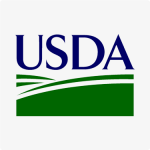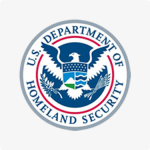B.C.B. CUSTOM SERVICES
CUSTOMS ENTRY
B.C.B. provides all kinds of customs clearances including perishables.
INFORMAL ENTRY
Entry generally covers shipments intended for the importers’ personal use or commercial goods entering the U.S. via air, ship or mail for consumption that are valued at $2,500 or less. This does not include commodities subject to other federal agency regulations such as FDA, USDA, etc.
FORMAL ENTRY
Entry used when goods are imported for use in the U.S. and going directly into the commerce of the U.S. without any time or use restrictions placed on them, which covers about 95% of all entries. Can be used for commercial, business or personal purposes.
WAREHOUSE ENTRY
Entry allows goods to be kept in a place where they may be cleaned, repackaged or even completed. Upon being granted warehouse entry, importers have a given period of time to pay the tariffs and remove the bonded goods.
IN BOND ENTRY
In-bond shipments to and within the US are shipments that are not intended to enter the commerce of the US and, therefore, are considered shipments in transit.
IE – IMMEDIATE EXPORTATION
Immediate exportation is an entry that allows foreign merchandise arriving at one port to be exported from the same port without the payment of duty.
IT – IMMEDIATE TRANSPORTATION
Immediate transportation entry allows the movement of imported merchandise to be transported under bond from the port of entry to another port without actual filing entry and paying duty and taxes or examination.
TE – TRANSPORTATION & EXPORTATION
Entry used when merchandise arrives in the U.S. and is moved in bond to another U.S. port for re-export to a foreign country.
CUSTOMS BOND
When importing merchandise into the U.S. for commercial purposes that are valued over $2,500, or a commodity subject to other federal agencies requirements (i.e. firearms or food)
SEB – SINGLE ENTRY BOND
CTB – CONTINUOUS TRANSACTION BOND
A continuous bond is normally obtained by importers who have a large number of entries and/or imports through several ports of entry during a given year. It has a term of one year and is automatically renewed each year. A continuous bond is valid until it is terminated by the surety or the principal.
BONDED WAREHOUSE AND TRUCKING
A warehouse in which imports may be stored without payment of tariffs or other duties for a certain period of time. A bonded warehouse provides not only space but also facilities to clean, repackage, distribute or even complete the manufacture of the imports.
IBEC
For the consolidation, cartage, transportation and exportation of in-bond merchandise in Customs & Border Protection (CBP) custody.
CFS
Refers to the location designated for receiving, unpacking and delivery of cargo or packed into containers.
BONDED TRUCKING
Transporter duly licensed by customs to carry duty-unpaid goods.
ISF FILING
Importer Security Filing (ISF) is a U.S. Customs and Border Protection (CBP) regulation that affects reporting requirements for ocean shipments entering the United States, or shipments that transit the United States to a foreign destination.
ISF – 5
Applies to foreign cargo remaining on board. Foreign Remaining On Board (FROB) filings are required for freight on board a vessel that will dock in the United States before moving to foreign port of destination or freight that will move in-bond through the United States to a foreign destination.
ISF – 10 “10 + 2”
ISF-10 (“10+2”) regulations require advance transmission of trade data 24 hours prior to vessel loading for containerized freight, and 24 hours prior to arrival at the port of discharge for break bulk shipments. (Importers of bulk cargo are exempt from filing an ISF with respect to that cargo.)






